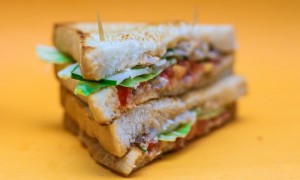Hundreds of years ago, Italian merchant Marco Polo travelled to Hangzhou. He was the first European to leave a detailed account of his experience in China.
In his book "The Travels of Marco Polo", he said he was amazed by the silk industry, food and culture in the eastern Chinese city. I have just followed Marco Polo's footsteps to bring you a series of perspectives of the city.
"I'm overlooking this picturesque lake that people have written about and talked about for centuries. It took me more than a day to reach this location with a stopover in Beijing. That's long enough to devour this book about Marco Polo," said Mike Walter, CCTV reporter.
"Back in his day he couldn't hop on a plane to move from continent to continent. No travels back then meant considerable hardship, time and patience. "
His travels in China alone would consume 17 years. After thousands of kilometers and years of travel he was most taken with Hangzhou, writing "It's beyond dispute the finest and noblest city in the world."
Food was an attraction back when Marco Polo was here and today people are still raving about the cuisine. What's not to love like the fresh fish caught in the lake to the mixture of unique ingredients.
World leaders will be served lots of it during their stay here. For a peak at some of the dishes we sent our reporter hu nan to talk with one of the head chefs.
20 local dishes for G20 Summit
Light, fresh, and soft. That’s probably the most frequently used words for Hangzhou cuisine. It's recognized as one of the eight major schools of cuisine in China.
Hangzhou dishes are known for their elaborate and sophisticated preparation, enjoyable presentation, and delicate cooking methods.
That exquisiteness may have its roots stemmed from history, some 800 years ago. That's when Hangzhou was the capital of the country.
Hu Zhongying is crowned as one of the “ten most famous chefs" in China. In fact, he spent half a century cooking -- and perfecting -- Hangzhou cuisine.
“With thousands of years of history behind us, every dish and its related historical figures are noted in book, as Chinese culture gives great importance to cooking and makes it a culinary art. Hangzhou cuisine uses less oil, sugar and starch, which fits the nutrition concepts of people nowadays," Hu said.
His most famous dishes include "West Lake Fish in Vinegar Gravy," "Shelled Shrimp with Green Tea," "Beggar’s Chicken," "Fried Bells," "Squirrel Fish," "Dongpo Pork," "Thousand Islands Lake Fish Soup," and, actually, dozens of other famous dishes that are luring gourmands from all over the world.
But only a few ones will be served at the G20 Summit dining table.
The city has over 5 thousand years of history, and every traditional Hangzhou dish has its own interesting story. 20 dishes will be served during the summit -- many of them salty and sweet, reflecting traditional Hangzhou cuisine.
Hangzhou cuisine emphasizes fresh seafood and produce, like bamboo shoots, and sauces with subtle and mellow flavors.
The goal is to accentuate, not overpower, a dish's leading ingredient.
"Shrimp with Green Tea and West Lake Vinegar Fish are traditional Hangzhou dishes. In Hangzhou's best known restaurant, the 4 traditional dishes can bring in an annual revenue of 100 million," said Ye Chi, secretary general, Hangzhou Food and Beverage Industry Association.
"That reflects the public acceptance of Hangzhou cuisine. The dishes we designed especially for the G20 Summit can also be promoted to ordinary restaurants for the public.”
Hangzhou cuisine is widely celebrated in China but practically unheard of in the West. Many foreigners are more familiar with fiery Sichuan dishes and the Cantonese dim sum, or the sweet Peking duck and succulent Shanghai soup dumplings. The G20 Summit might be a platform for Hangzhou cuisine to add some flavor to the global gourmet’s table.







